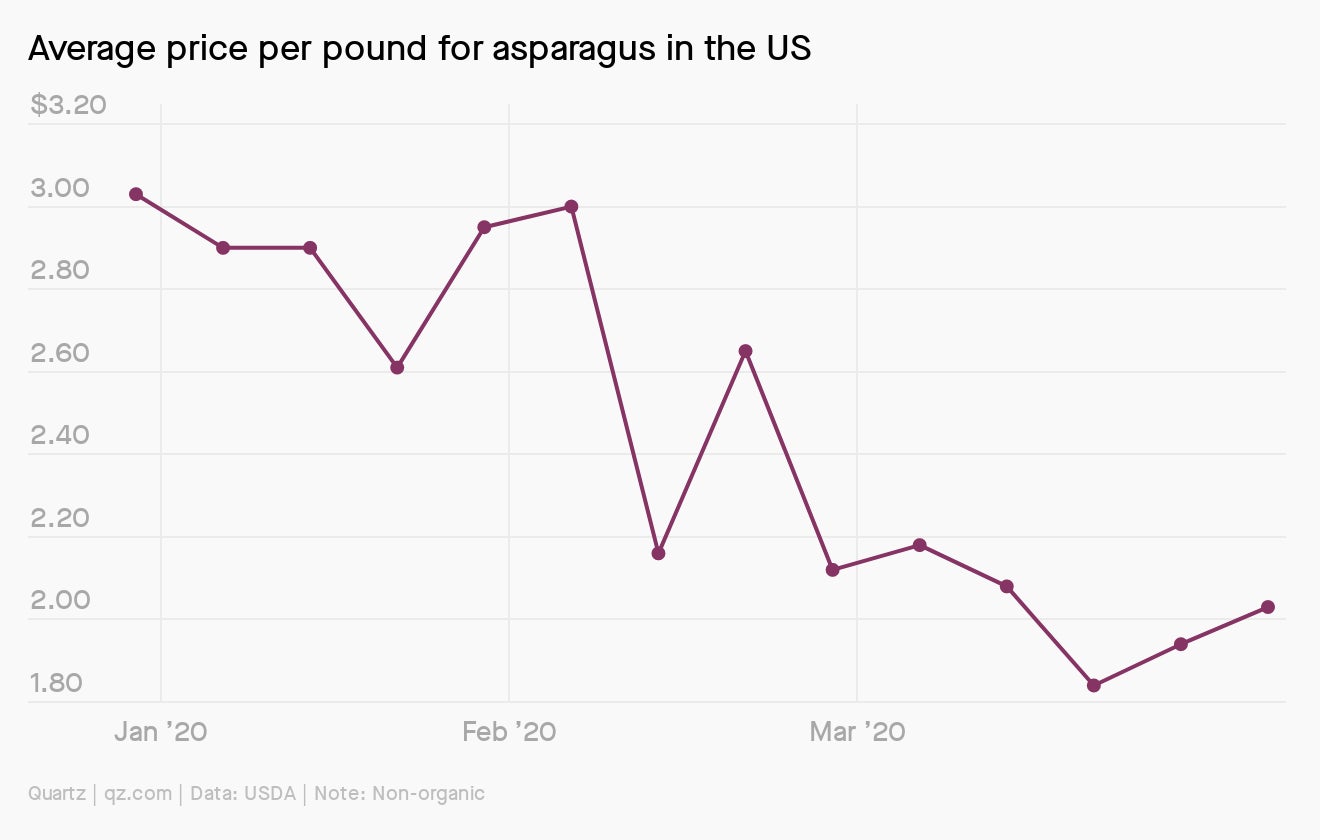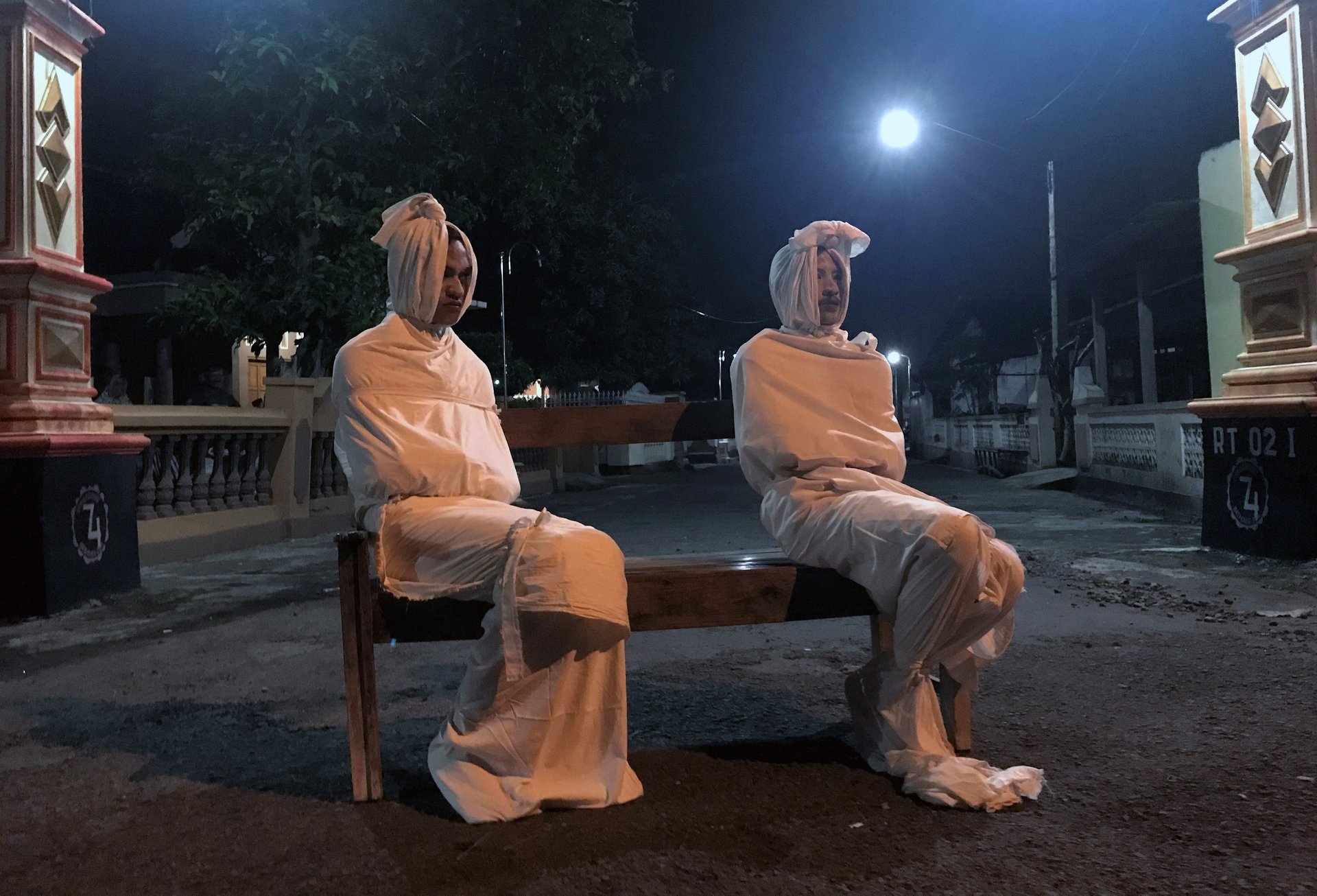SoftBank’s loss, Ramadan travel, tulips pushing daisies
Good morning, Quartz readers!

Good morning, Quartz readers!
Here’s what you need to know
SoftBank’s Vision Fund sees an ocean of red ink. The $100 billion late-stage venture fund will reportedly disclose a ¥1.8 trillion ($16.7 billion) loss for the technology group and its investors. Much of the damage can be attributed to CEO Masayoshi Son’s bad bet on WeWork.
Indonesia’s government was warned about Ramadan travel. Researchers said the millions who will head from major cities to their home villages could cause local Covid-19 outbreaks, but president Joko Widodo has so far resisted pressure to crack down on the traditional exodus.
Kargo’s latest funding round includes relief for coronavirus-impacted truckers. The Jakarta-based logistics startup, headed by ex-Uber Asia executive Tiger Fang, announced a $31 million Series A funding round that also asked investors to support its Covid-19 response fund. The fund is currently maintained through contributions from Kargo employees and 100% of Fang’s salary.
Pressure is mounting for China to offer African debt relief. So far, Beijing has been unwilling to take the lead on a broad pandemic-motivated debt-forgiveness program, but a temporary repayment freeze is expected to be announced at this week’s G20 meeting.
Coronavirus canceled the world’s biggest water fight. Thailand usually celebrates its new year by spraying water guns and hurling water off pick-up trucks. The government’s move followed a ban on alcohol sales and a request that citizens avoid travel.
What to watch for today
- India’s three-week lockdown is scheduled to end.
- The IMF issues its world economic outlook.
- China releases its March balance of trade data.
- Vietnam hosts a virtual ASEAN and ASEAN+3 summit on the region’s Covid-19 response.
- Indonesia decides on a rate cut.
- JPMorgan, Wells Fargo, United Airlines, and Johnson & Johnson all report earnings.
Charting food stability
Even if you don’t like asparagus, what’s happening to it is reflective of Covid-19’s threat to global food stability: In US grocery stores, the average price per pound has plummeted.

The culprit is change in global trade. Mexico accounts for 30% of asparagus exports, and many of those go to both the US and Asia. But shipments to Asia have decreased, which has Mexico redirecting that asparagus to the US, whose supply now outweighs demand. This drives down prices, which ultimately impacts US farmers, who are already struggling with labor issues.
For our members
- $5 million: The amount raised, as of April 12, by a crowdfunding campaign to open a new intensive care unit in Milan’s San Raffaele hospital.
- $2 billion: What the World Health Organization and other UN agencies say they need to fight Covid-19. They’ve received $255 million so far, with another $34 million pledged.
- $1.3 trillion: Estimated value of the global sports industry, according to Plunkett Research. Before the pandemic, Deloitte had forecast a “golden” outlook for the sector this year.
Quartz Daily Obsession
What if nature wanted social distance, too? Only 25% of the planet is currently substantially free of human impact, and activists say rewilding—the process of letting land go back to its “natural state,” sans human intervention—could be the key to revitalizing ecosystems. Take a walk on the rewilding side with today’s Quartz Daily Obsession.
Surprising discoveries
China banned Animal Crossing. The top-selling Nintendo game was pulled from online stores after activists began decorating their digital islands with “Free Hong Kong” messages.
Our first interstellar object won’t be our last. A new theory suggests one hundred trillion objects similar to ‘Oumuamua are created by every planetary system.
The Netherlands just destroyed 140 million tulips. Coronavirus has ground the international flower trade to a halt.
You’re never too old to beat Covid-19. Gina Dal Colleto, 97, became Brazil’s oldest coronavirus survivor when she left the hospital on Sunday.
Ghosting is the new social distancing. An Indonesian village dresses up volunteers as ghostly pocong to scare residents into staying home at night.

Did you get the memo?
We know you’re busy. That’s why Quartz at Work is launching The Memo, a newsletter worthy of your inbox and time. We’ll share dispatches from the world of modern work, plus actionable advice—no matter where you are in the org chart—for creating more productive, creative, and compassionate work cultures, even on video chat.
You asked
Can you be positive for Covid-19 if you have flu-like symptoms but no fever?
The answer is yes—if you’re feeling flu-like symptoms without a fever, you should still assume you have Covid-19. But fever is the most common symptom. In an observational study published by the WHO in February, fever—classified as a body temperature of 100.4ºF (38ºC) or higher—showed up in about 88% of nearly 56,000 Covid-19 patients. After that, 68% had a dry cough, 38% felt extreme fatigue, and 33% reported coughing up phlegm.
Fevers are like the body slam of innate immune response. Viruses prefer to do their business at certain temperatures, so when we turn the heat up, it’s harder for them to survive. It’s a tradeoff—fevers feel terrible for us, too, but they rarely cause long-lasting damage on their own.
✉️ What’s your burning question? (no pun intended)
Our best wishes for a productive day. Please send any news, comments, interstellar visitors, and scare tactic ideas to [email protected]. Get the most out of Quartz by downloading our app on iOS or Android and becoming a member. Today’s Daily Brief was brought to you by Max Lockie, Susan Howson, and Kira Bindrim.